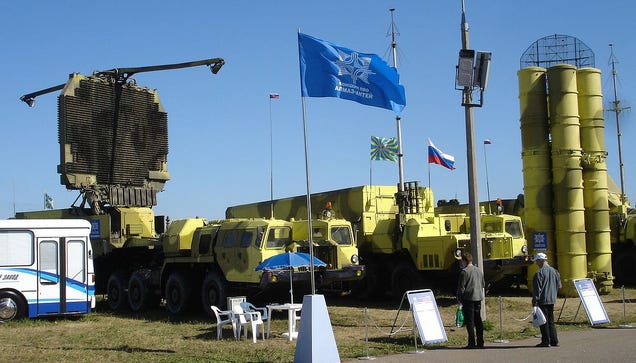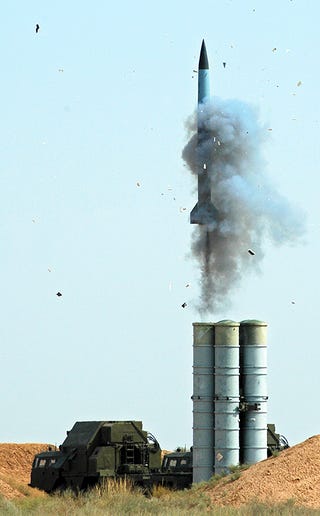A Love Match Made In Hell
One way or another, Russia will have its revenge on the West in its showdown with Moscow over Ukraine and NATO's confidence-building presence in eastern Europe where Russia's neighbours are uneasily eyeing its presence too uncomfortably close with the annexation of Crimea and rumblings of its honour-bound obligation to 'protect' ethnic Russians living in other countries once part of the USSR. There are more than nine ways to skin a cat, and Russia isn't averse to skinning a skunk, either.There is a natural affinity, one should suppose, between two outliers, Moscow and Tehran, and each with their grievances against the West (yes, Putin is somewhat more subtle than to mouth 'Death to America', but the thought process is similar) happy to deal with one another to the chagrin of those of its partners in the P5+1 (though Germany may be next) to enhance Iran's conflict capabilities rather than deplete them.
The decree that Vladimir Putin signed green-lighting shipments of its S-300 air defence missile systems to Iran, has certainly alarmed some in the international community, and it isn't hard to guess which country in particular is most alerted to how precisely this exchange will affect them. Gazeta.ru reports that Israel's President Benjamin Netanyahu wasted no time in informing President Putin that the sale of the missile systems to Iran will pose a direct danger to Israel.

It takes two to tango, and while Russia may feel that it can get to the West's nerve endings by expediting this sale whose contract has languished for years, Israel can complete the circle by selling advanced arms to Ukraine, in its battle with Moscow, even on credit. Wouldn't be too far-fetched after all, a dangerous tit earns a responsive tat. All very well for Russian Foreign Minister Sergey Lavrov to note that Moscow's commercial interests and reputation are involved.
And that "The S-300 is exclusively a defensive weapon, which can't serve offensive purposes and will not jeopardize the security of any country, including, of course, Israel." Even taken with a grain of salt, it's scant comfort. Deployed in numbers the system is capable of providing a hefty deterrent against air attack. Should Israel determine to attack Iran's nuclear facilities the S-300s would complicate matters enormously.
Israel must have felt more than enough anguish over the P5-1, U.S.-led agreement framework with Iran, emphasizing that the sanctions relief coupled with leaving Iran's nuclear program fairly intact will leave it free to proceed with its ultimate goal; the development of a nuclear weapon. "This is a direct result of the legitimacy that Iran obtained from the emerging nuclear deal", said Israeli cabinet minister Yuval Steinitz.
The initial framework agreement, he said, has legitimized Iran's plans, clearing the way for Russia to proceed with its delayed delivery of the missile systems. Iran obviously plans to utilize financial relief from the lifting of economic sanctions not to alleviate and improve living conditions of the Iranian people, suffering under the sanctions fallout and the straitened economy for years, but to buy arms and advance its nuclear ambitions.
Not to worry; in Tehran General Reza Talaceinik soothingly claims the Russian decision will help enormously to improve ties between Tehran and Moscow. And it isn't Moscow, after all, toward whom Iran will aim the S-300 missile system with its range of up to 200 kilometres and its capability of tracking down and striking multiple targets, representing one of the world's most powerful air defence weapons.

Labels: Armaments, Defence, Iran, Israel, Negotiations, Nuclear Technology, P5+1, Russia, Sanctions, Security

<< Home